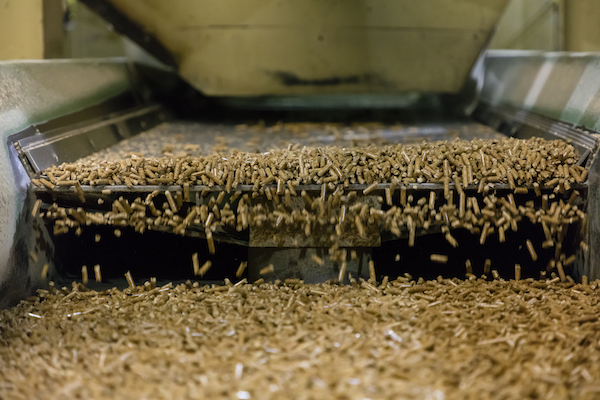
Mill closures, wildfires curbed Canadian pellet production 6% in 2023: USDA report
February 14, 2024
By
Todd Humber
 Photo: WPAC
Photo: WPAC Wood pellet production in Canada last year declined by six per cent, according to forecast data published in late December by the United States Department of Agriculture (USDA) Foreign Agricultural Service (FAS).
The USDA said the decline is a “result of closure of pellet mills, reductions in allowable cut, and a high activity wildfire season.” It noted that two pellet plants have been shuttered, and a third has had disruptions in production. (The report didn’t name the plants.)
Exports of wood pellets are forecasted to have declined 14 per cent as a result of reduced production and diminished demand from South Korea and the United Kingdom for Canadian wood pellets, it said.
Slight growth in pellet imports
At the same time, imports of pellets to Canada are expected to rise on what it called a “slight growth” in domestic demand.
“While FAS/Canada is forecasting a 45 per cent growth in wood pellet imports to Canada for 2023, this volume will continue to remain very small relative to Canada’s production and exports,” it said.
It also noted that most of the pellets being imported are “typically consumer bagged for the residential heating market.” Most of those pellets (97 per cent) are crossing the border from the U.S., it said.
‘Minimal’ use of pellets domestically for large-scale heat, energy
Domestically, the use of wood pellets for large-scale commercial heat and energy remains minimal, it said, with the demand being upheld by smaller-scale industrial and residential applications.
“While there remains significant potential for growth in domestic consumption, growth has been slow and government policy has been lacking to provide a stimulus for conversion to wood pellets for heat and energy projects,” it said.
Export market
Pellet exports to the U.K. continues to be in decline, it said, as Asian markets provide “more favorable expert logistics and growth opportunities.”
The ban by the European Union on Russian wood pellets has helped spur demand for Canadian pellets, but Canada remains a lower volume competitor compared to the U.S. The USDA pinned that on a lack or production on Canada’s east coast compared to the U.S., which favours American exports to Europe.
But it expects demand to grow in France as the two remaining coal-fired power stations are switching over to pellet fuel by 2027.
Print this page